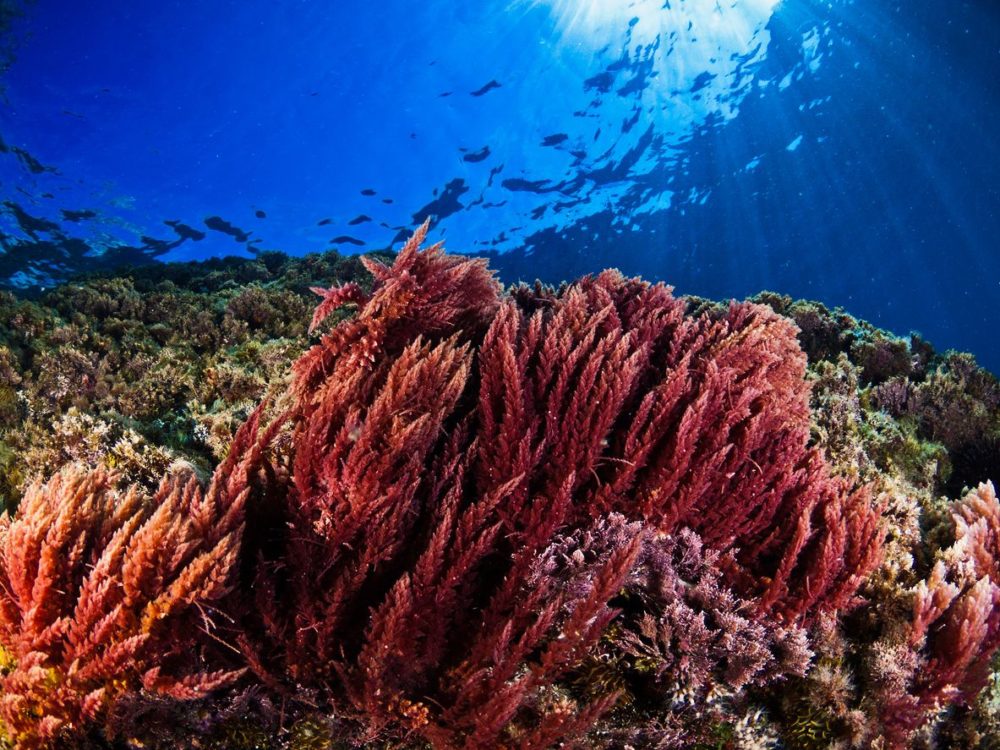The Australian government has invested A$1 million ($779,000) into a seaweed-farming firm to drive the commercialization of technology that can reduce methane emissions from cattle.
Tasmania’s Sea Forest is among the recipients of the latest round of Accelerating Commercialisation grants, receiving the largest single amount under the scheme this month. It produces seaweed in the Asparagopsis genus, which Australia’s national science agency, CSIRO, has shown to be effective in reducing cattle methane emissions by as much as 80% when incorporated into the animals’ feed.
The startup has developed its own method of cultivating Asparagopsis offshore on repurposed mussel farms at commercial scale, and aims to use the funding to start supplying commercial quantities of the seaweed. Last July, it signed an agreement with New Zealand dairy giant Fonterra to trial feed supplements containing its crop for cows and sheep.
“Using the Asparagopsis Sea Forest supplement to reduce methane [is] an economic no-brainer,” CEO Sam Elsom said in a statement.
In addition to reducing methane production in the cow’s digestive system and helping to draw carbon dioxide out of the sea, Asparagopsis can also lower feed costs, he claimed.
“Twenty percent of the cow’s energy is lost in converting food into methane, so there will be significantly less food needed to grow livestock.”
The seaweed produces a compound called bromoform, which inhibits the enzyme in the cow digestive system that forms methane.
Sea Forest sub-licenses the intellectual property around the supplement from FutureFeed, the company set up to commericalize years of research into the methane-abating properties of Asparagopsis carried out by CSIRO, James Cook University, and Meat & Livestock Australia.
Last year, CSIRO and four other investors pooled A$13 million ($10.1 million) in funding to launch FutureFeed. Retail giant Woolworths, commodities handler GrainCorp, agrifood group Harvest Road, and accelerator AGP Sustainable Real Assets–Sparklabs Cultiv8 Joint Venture were the others to back the fledgling company.
FutureFeed has also licensed its technology to US-headquartered CH4 Global, which is set to trial its own supplements with abattoir feedlots, sheep producers, and dairy operations in Australia and New Zealand.
CSIRO, Woolworths unveil FutureFeed, a seaweed supplement that cuts cow methane by 80% – read more here
Other than Sea Forest, six other companies shared in the total A$4.2 million ($3.27 million) handed out in the Accelerating Commercialisation scheme for February.
Among them is New South Wales-based Agscent, which has developed a bovine breath test that can determine if a cow is pregnant. This offers a “non-invasive, efficient, accurate, and affordable” alternative to the cattle pregnancy testing methods currently in widespread use, the startup claims on its website.
Also securing funding is Phyllome, a Sydney-based startup founded last year which is deploying a combination of AI, robotics, and genetics for precision indoor agriculture operations.
Darwin-based Monsoon Aquatics received funding for its “advanced aquaculture system” that allows it to ‘farm’ corals for use in aquariums and artificial reef-building, reducing reliance on specimens harvested directly from the wild.
Comment? News tip? Story idea? Email me at [email protected] or find me on LinkedIn and Twitter





